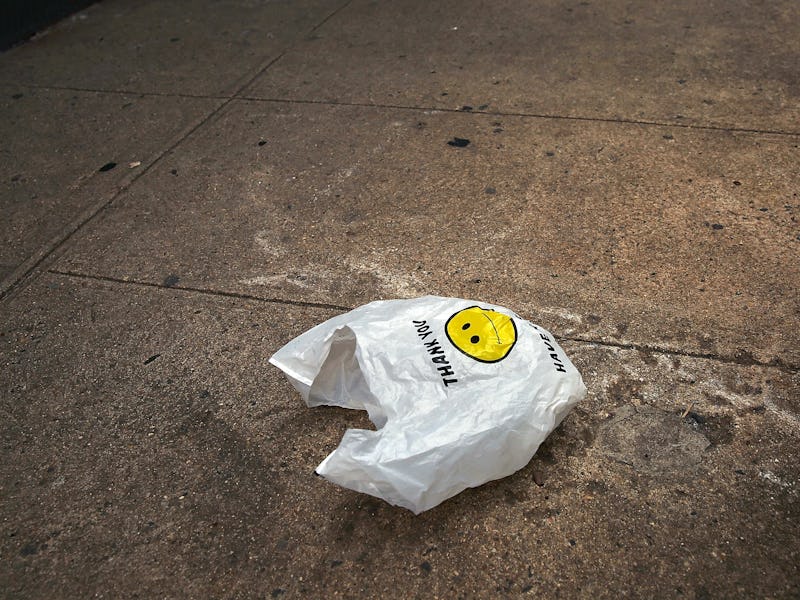Extremely Cool Chemical Process Turns Polyethylene Plastic Into Liquid Fuel
A new paper details how to break down polyethylene in just one day.

A team of researchers just found a way to literally turn trash into treasure — by discovering a new chemical process that transforms plastic trash into liquid fuels and waxes. A new paper in Sciences Advances details how plastic bottles bags, films, and all other manner of nasty stuff containing the compound polyethylene can be degraded and repurposed. This means that potentially millions of tons of recycling each year could be used to power our cars. As for the waxes, they can be used in industrial manufacturing.
According to the paper, plastics comprising polyethylene, the relevant compound to this new process, account for about two-thirds of all plastic municipal waste — more than 100 million metric tons per year. It’s also particularly difficult to degrade, resistant to things like oxygen and heat— until now. The researchers, led by Chinese organic chemist Xiangqing Jia, call the reaction CAM (catalytic cross alkane metathesis), and it works by “scrambl[ing] the alkanes or hydrocarbons found in plastics, resulting in a breakdown of polyethylene. Once broken down, the polyethylene chains undergo complete conversion into liquid fuels and waxes.”
Researchers discovered a new process of turning trash into liquid fuels and waxes.
If this already sounds too good to be true, wait, because you’re in for a lot of that. The process uses reagents that are both inexpensive and widely available, and it can degrade various kinds of polyethylene plastic in just one day. The solution produced also has a very low viscosity, which means it’s free of the “mass and heat transfer issues” that generally arise when attempting to melt down polyethylene, or PE. They’ve also already tested this with commercial-grade PE — and all the additives that entails — not just some isolated substance produced for a lab. Because of all this, the researchers concluded that the process has implications far beyond an academic vacuum — it’s economically feasible.